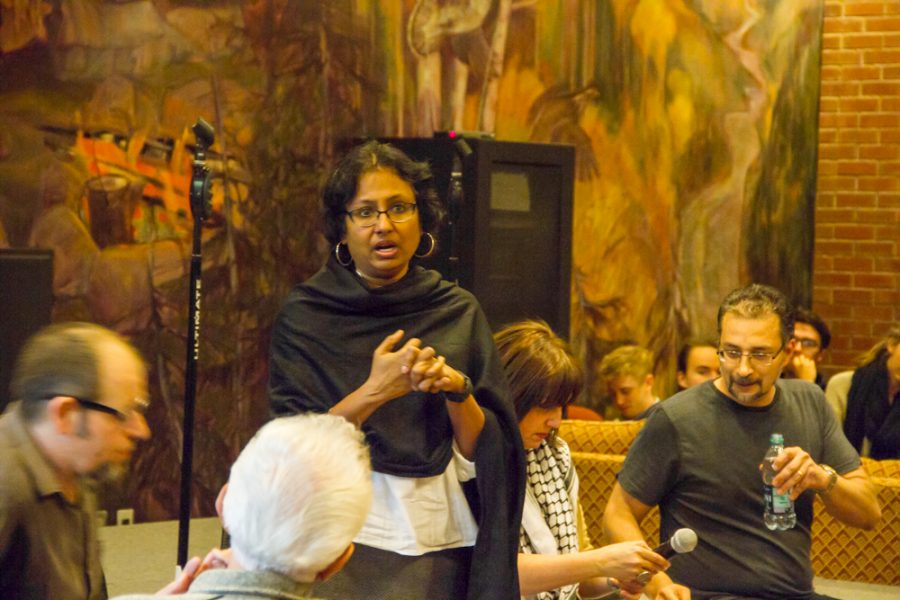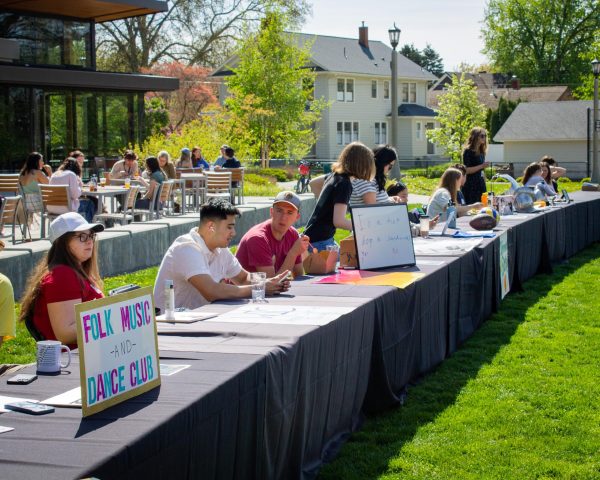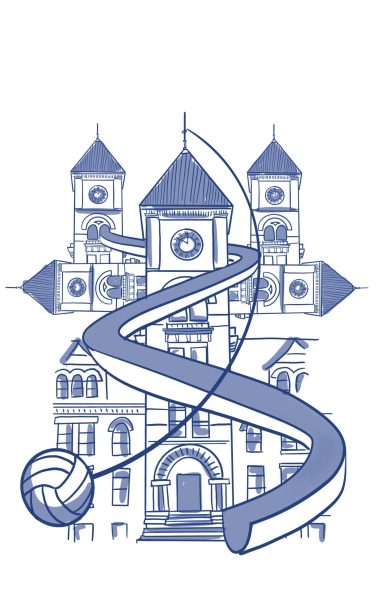Campus Event Bring Attention to Islamophobia
May 5, 2016
Prejudice and calls for legalized discrimination against Muslims has increased sharply in the last year, and Whitman community members are stepping up to converse about these issues.
A forum in Reid Coffeehouse on April 14 and a lecture about the Syrian refugee crisis given on April 27 were held to discuss Islamophobia and media coverage of events in the Middle East. The pair of events aimed to encourage dialogue and create a space for people to speak about issues that impact people globally and specifically in the Whitman community.
The forum featured a panel of faculty who spoke to personal or historical issues regarding topics such as the Syrian refugee crisis and the Israeli-Palestinian conflict before opening up to a general conversation amongst those in attendance. The group discussion was as varied as the panelists’ pieces, ranging from broader conversations about how information is presented by the media or impacted by different political biases, to a more local issue of how the ‘Whitman Bubble’ affects understanding of these issues on campus.
“There was some discussion about the ‘Whitman Bubble’ and how do we break it, but in a way we were doing that by saying ‘Not every Whitman experience is the same,’ and by sharing those differences we open up different ways of dialoguing with one another,” said Professor of History Elyse Semerdjian, a faculty panelist.
While many people appreciated the dialogue, the winding nature of the open forum conversations and the difficulty of fleshing out longer ideas within the allotted time were noted as a few reasons to have more forums or other opportunities for people to speak in different venues.
“I think these forums are definitely very important to have these kinds of discussions, and especially [with] it being regulated by professors I feel like that’s very important as well,” said first-year Fathi Assegaf. “But I feel like there’s still a difficulty in minority groups to voice their opinions and maybe to have some of the members of those minority groups into the moderation and to speak their mind before the discussion really takes place. I think that might be important to do as well in those forums.”
The second Islamophobia-related event of recent weeks was a presentation by Semerdjian on the Syrian refugee crisis, which was given as part of Immigration Week, a series of events sponsored by student collective Borders As Methods (BAM). The talk provided an in-depth look into impacts of the Syrian Civil War that has been ongoing since 2011, examining subtle ways that the media has depoliticized the issues by referring to the “migrant crisis” as opposed to a “refugee crisis,” and touching on Islamophobic rhetoric that has risen in recent times. However, the talk also had a personal touch, both focusing on pictures of refugees involved in the crisis and including personal anecdotes from Semerdjian herself.
“Sharing my story as a Syrian, who receives text messages from my family members as they’re passing through these borders in Europe fleeing Syria while I’m teaching you, that’s not a story that I walk into the classroom and tell…I have this whole other life that I’m experiencing outside of the Whitman experience,” said Semerdjian.
The Syrian Civil War has displaced an estimated 6.6 million individuals within Syria and resulted in 4.8 million refugees leaving the country according to a February 2016 report by the United Nations. Response in the global community has varied, from Germany accepting approximately 500,000 Syria refugees in the past year to Canada and the US taking in 25,000 and 1,400 individuals, respectively in the past year.
The talk reflected on some of these numbers but also highlighted the importance of how this seemingly global issue is something that can and does relate to individuals in the Whitman community.
“I think that when it’s deemed a foreign problem it’s kind of easier to feel that you don’t have to act or stay informed because it doesn’t impact you directly. But when you put the pieces together you start to realize, ‘Oh wait, no, even if it doesn’t impact me directly it can impact those around me,’ and as a community we need to stand together,” said senior Jackie Bonilla, a member of BAM.









